Our Core Programs
The 360 Curriculum is a responsive curriculum, driven by the decisions that teachers make to support children’s emerging knowledge, skills and dispositions. Our 360 Programs represent the wealth of child development knowledge, pedagogy and (combined) centuries of parenting experience that has passed through, and remains, in the 360 family.
Beyond the Classroom
Local Excursions
In 2016, we carried out a thorough review of the literature on Risky Play, which highlighted a significant decline in children's connection to the outdoors and their participation in physical activities in recent years. At 360, children of all ages are able to be involved in tangible and authentic experiences between the service and the community.
Our babies and toddlers explore different areas of the service as well as the nearby business park. Meanwhile, our older children visit local libraries, museums, and other important community spaces to broaden their understanding of the world and support their wellbeing.
Our quality assurance systems are industry-leading and have been recognised nationally by the Australian Children’s Education and Care Quality Authority (ACECQA). We conduct thorough risk assessments and vigorous planning before children venture outside the classroom.
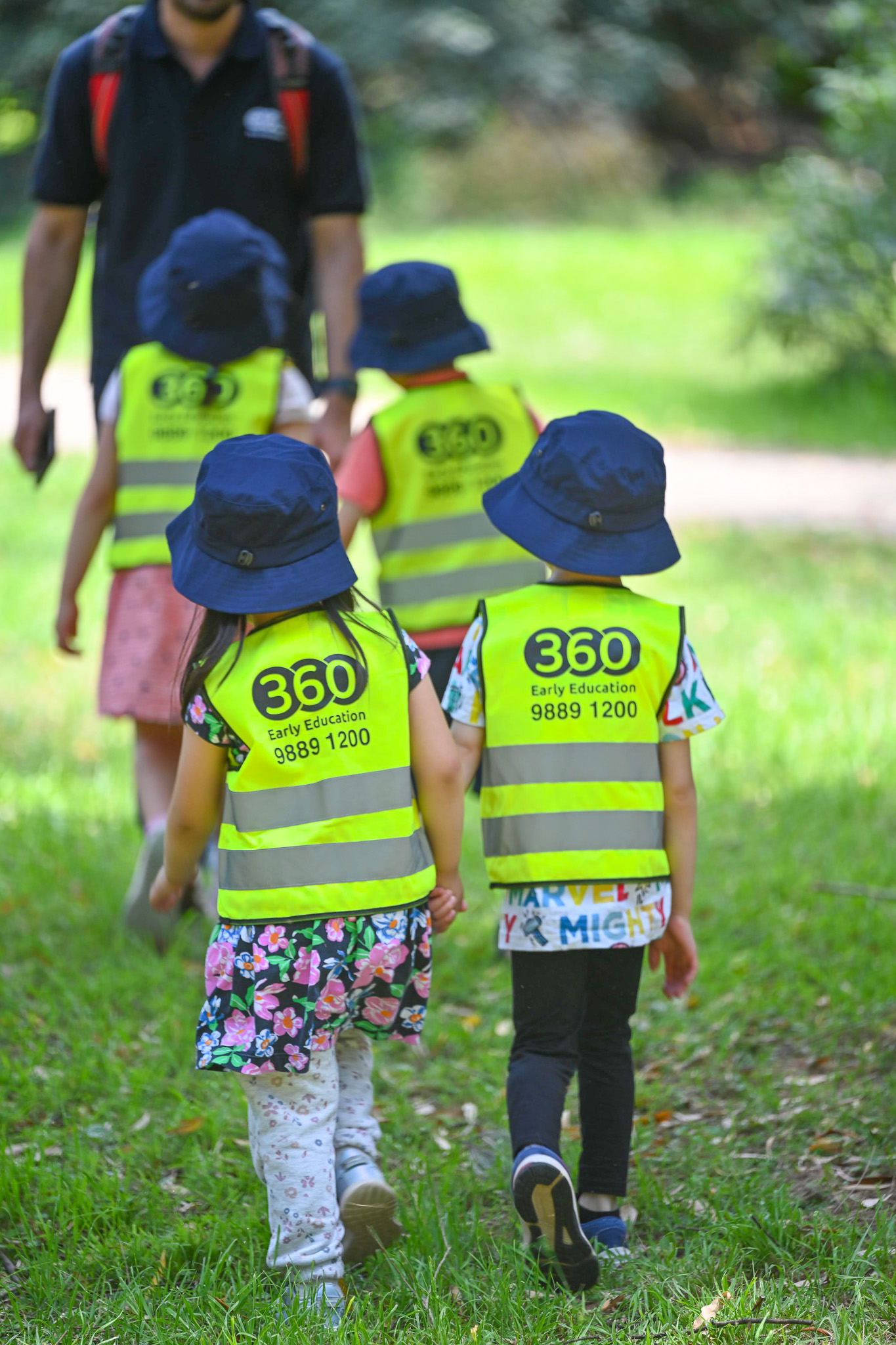
Bush School
Bush School is a holistic educational approach inspired by the Scandinavian "Forest Schools." It offers a largely unstructured, play-based curriculum set in local natural environments. Through Bush School, children develop a strong connection to nature, fostering respect and appreciation for the natural world. We particularly enjoy exploring local national parks and bushland.
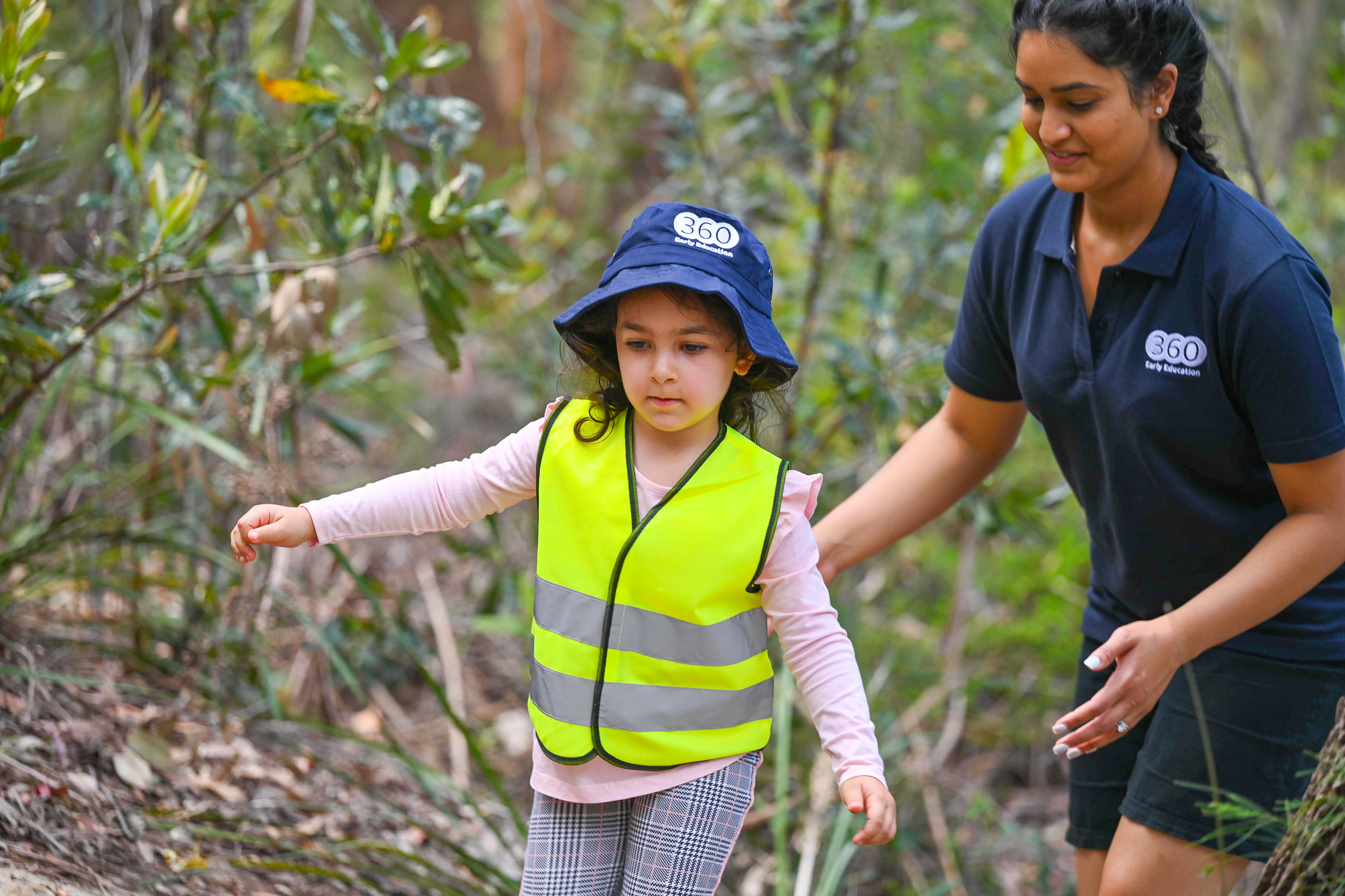
Swim School
During the summer, our service collaborates with a local swim center to offer swimming lessons for our preschool children. The children learn about water safety and build essential skills to become confident swimmers. We also arrange extra classes for families who are eager to participate!
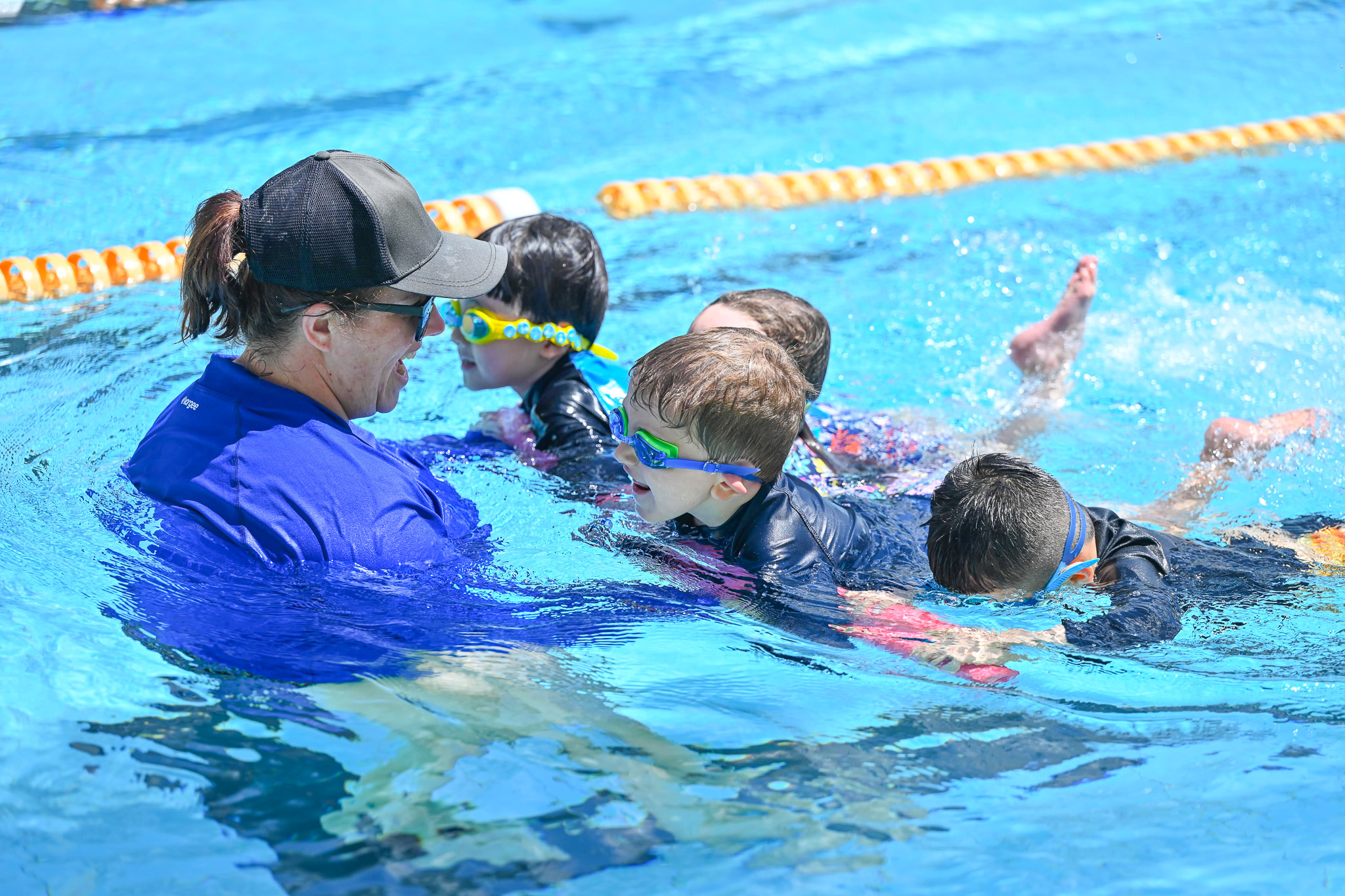
Wellbeing Programs
Second Step
At 360 Early Education, we recognize the significance of relationships and make them central to everything we do. Research consistently shows that social and emotional skills—such as managing emotions and building positive connections with others—are crucial for academic success later in life, even more so than any other early childhood skill.
The Second Step programs equip young children with essential human skills that lay the foundation for lifelong success. Your child will develop tools in areas such as self-regulation, maintaining friendships, empathy, problem-solving, and listening skills.
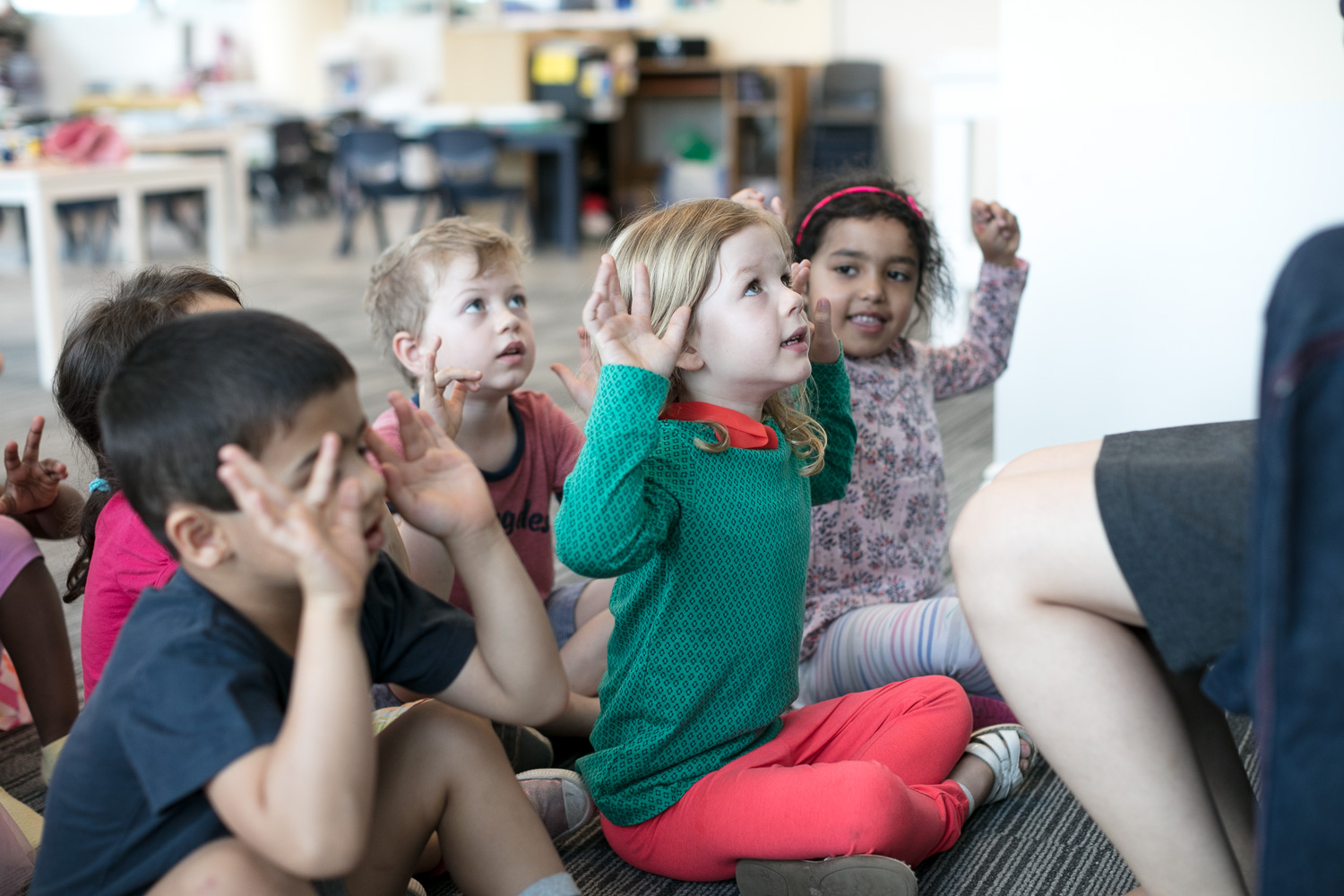
Thrive
Our Thrive Program is grounded in evidence-based theories, including neuroscience, child development models, Attachment Theory, and the Primary Carer model. This program educates both our staff and parents on the importance of healthy, consistent relationships for children under the age of 5. For children under 3, we assign primary and secondary educators to support their daily routines in small-group settings. We recognise that the first three years of a child's life has a more significant impact on development than genetics.
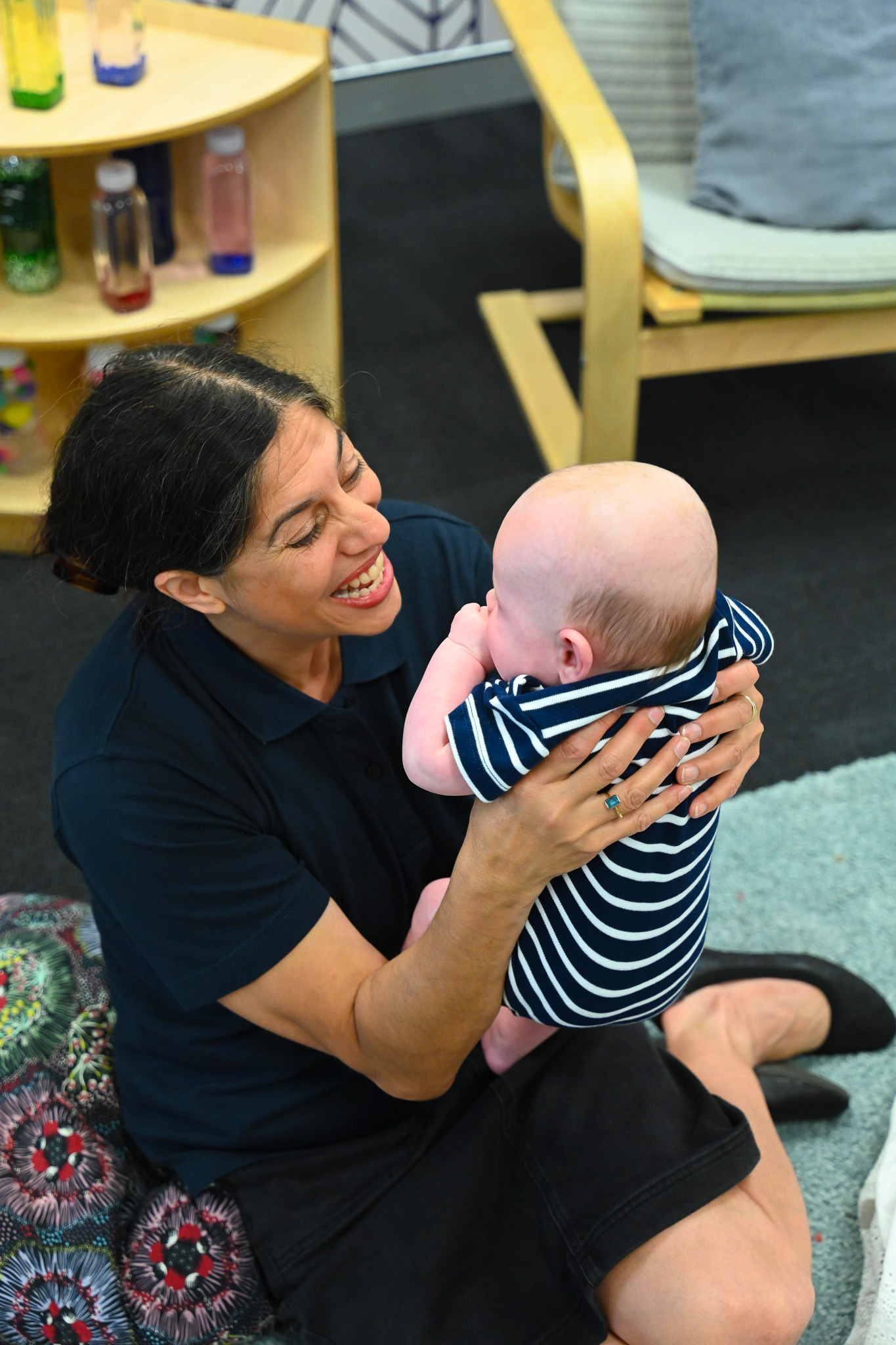
Munch and Move
Munch & Move is a State Health initiative aimed at supporting the healthy development of children from birth to 5 years, by encouraging physical activity, healthy eating, and reduced screen time. All 360 services have partnered with this initiative and integrate the program through play-based learning activities that focus on healthy eating and physical wellbeing.
You can look forward to obstacle course, yoga, and more.
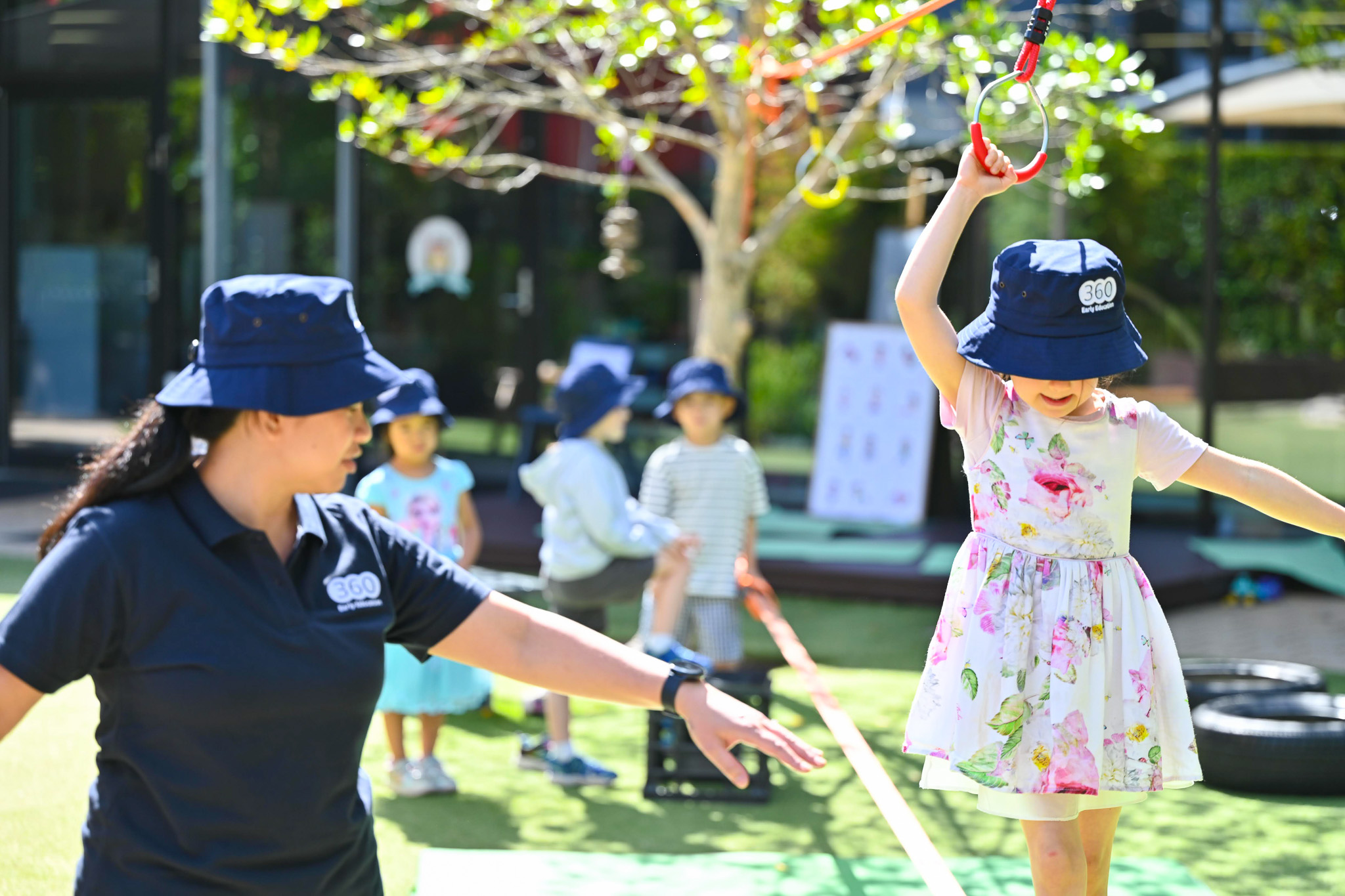
Imagination Library
In 2015, our parent committee was searching for a charity to support when we discovered Dolly Parton’s Imagination Library. The charity provides disadvantaged children with a free, age-appropriate book each month from birth to age 5 to improve early childhood literacy. Our efforts also support K.I.C.S. (Katherine Isolated Children’s Services), which travels 48,000 kilometers yearly across remote Northern Territory communities to run playgroups.
What can children and families expect?
- Each month, every room/age group receives a book of the month, incorporated into the room programs.
- Educators tailor learning experiences based on the book, covering key learning areas.
- A library borrowing system is available in the rooms, allowing families to access the same book and link learning at school with learning at home.
- Each year, we host a service-wide fundraiser for The Imagination Library, with families invited to participate in a celebration of the service. Families are invited to make small donations to support this initiative throughout the year.
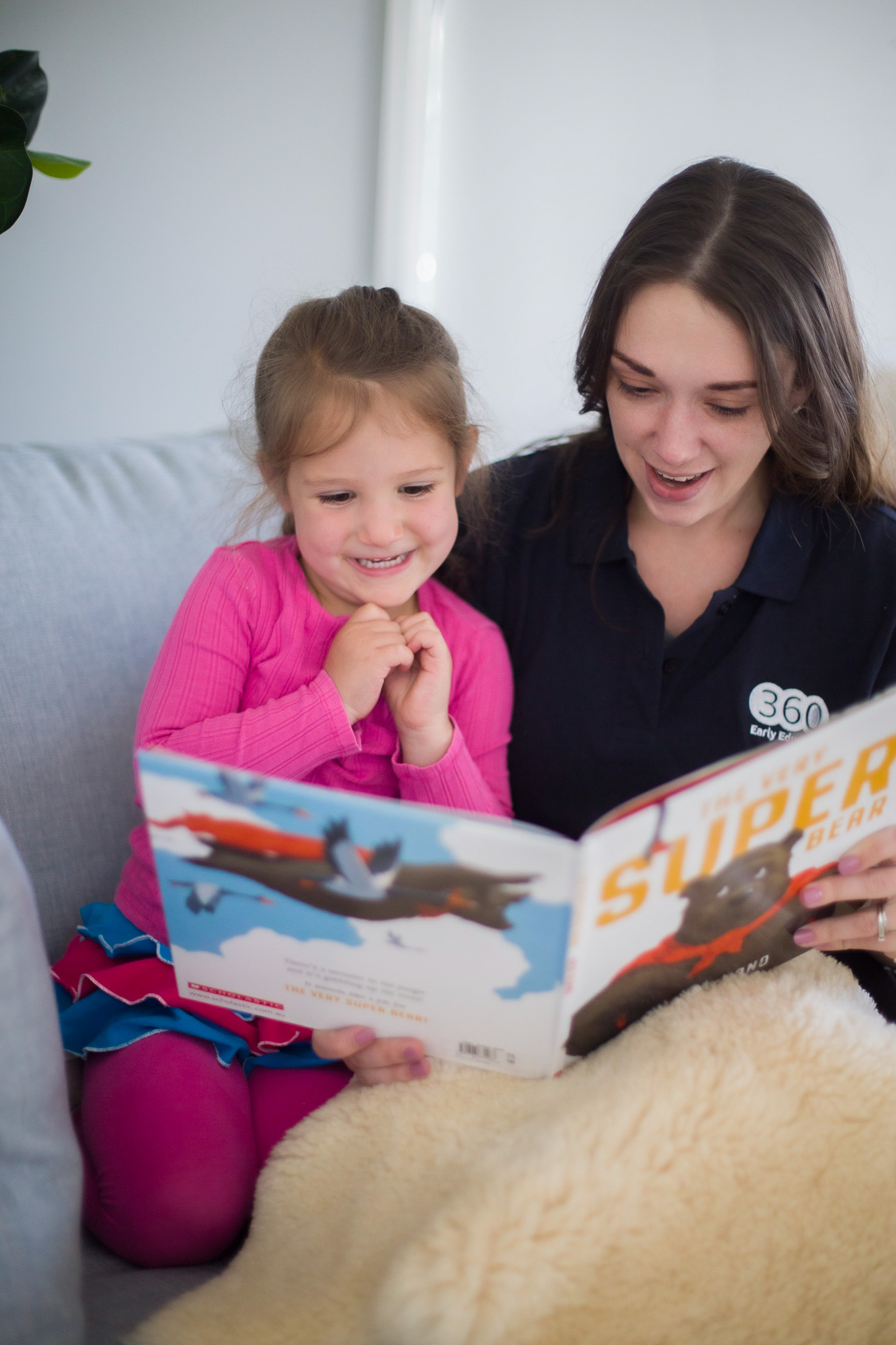
School Readiness Program
What is School Readiness?
School readiness is more than just the first day of school; it's a gradual process that unfolds over time, starting in the early years. By the age of five, nearly 90% of a child's brain development occurs. There are many skill areas that help ease the transition to primary school including communication, motor skills, health and wellbeing, self-help abilities, social skills, emotional regulation, early literacy and numeracy and more. Our School Readiness Program provides children with these essential foundational skills, along with practical life skills.
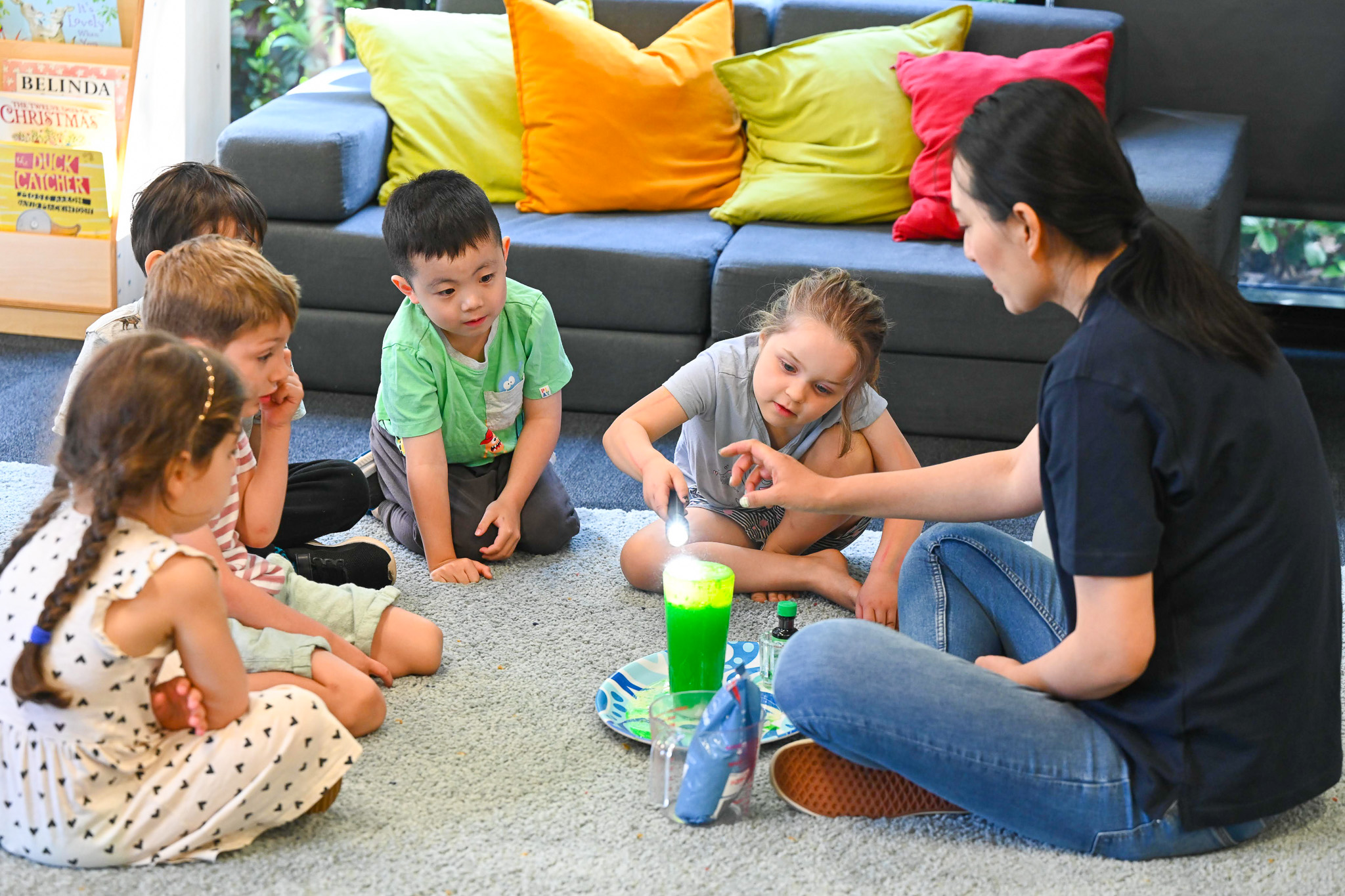
School Preparation
in our Crocs and Wombats Rooms
What do our children look forward to developing in their year before school?
- Communication Skills: Understanding direction, following classrooms, active listening, positive attitude, curiosity, vocabulary broadening
- Motor Skills: Writing & mark development, pen and scissor management, manipulative activities, fine and gross motor skills
- Health & Wellbeing: Toilet-training, dental and self-hygiene, healthy eating, mindful resting
- Self-care: Taking care of belongings, putting on socks and shoes, dressing for weather, coping with change and transitions, joining in play
- Emotional regulation: self-expression, healthy relationships, asking for help, dealing with separation anxiety
- Social wellbeing: positive self-esteem, using words effectively, standing up for one-self, conflict resolution
-Practical skills: wearing uniforms, lunchbox meals, reduced naps, structured group times,
- Early literacy and numeracy: print awareness, comprehension, letter sound and word patterns, story structure, sequencing, retelling narratives, vocabulary building, emerging writing, directional and positional language, patterning, measurement, classification, mass and volume, shapes, area, graphing and tallying data, mathematical operations through everyday experiences (adding, subtracting, fractions, division)
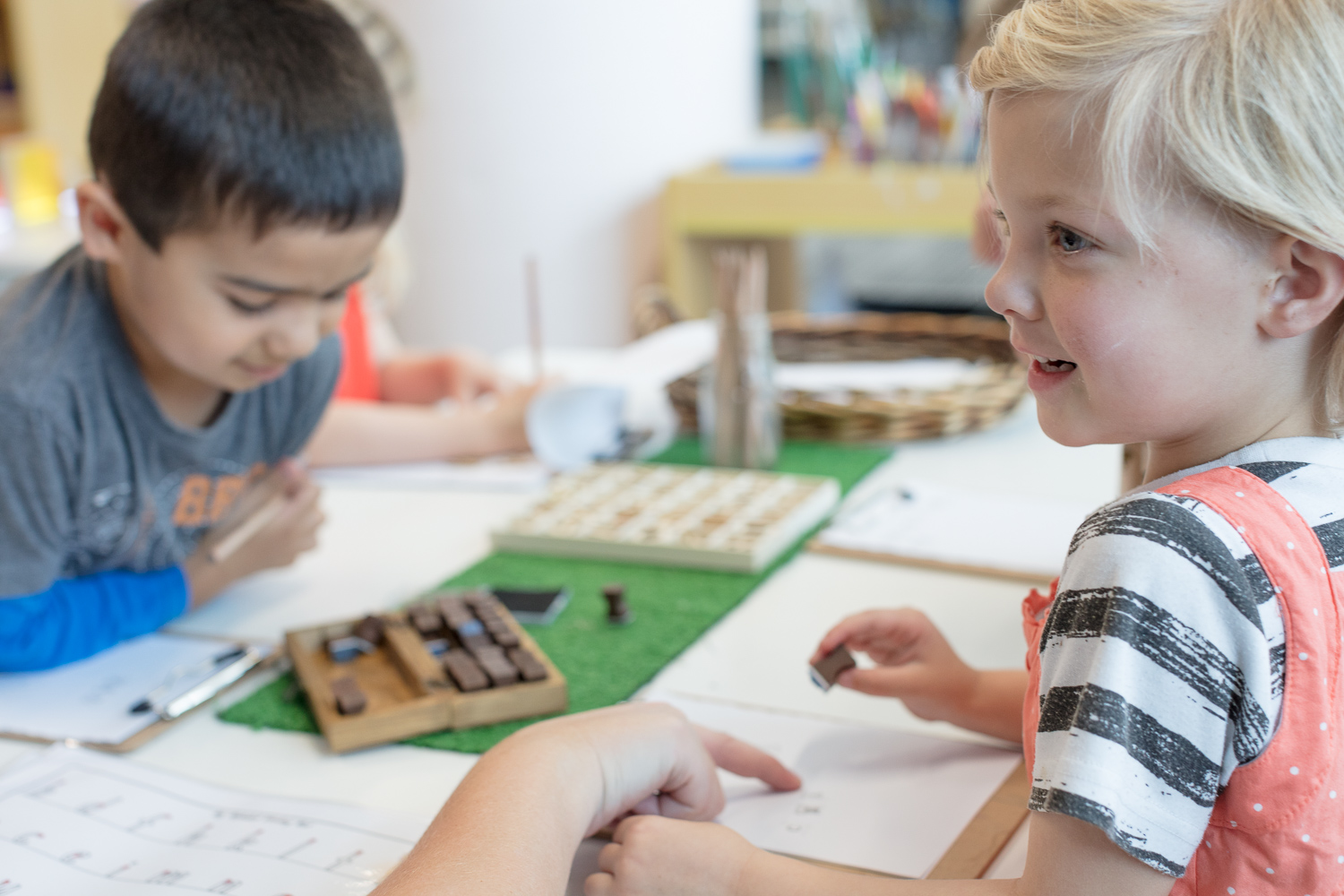
What can families expect?
To support families, we provide the following resources to assist with a smooth transition to primary school life:
- Transition to School Evening in August with a Local Principal
- Christmas Party & Graduation Ceremony
- Transition to School Reports (December)
- Parent-teacher meetings with goal-setting



